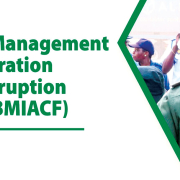|
Getting your Trinity Audio player ready...
|
Image: SAnews.gov.za
The importance of cross-border co-operation in effectively tackling organised crime and illicit financial flows has been well documented. Building stronger networks will help ensure that criminals do not escape by fleeing the country, and because criminal networks have become more resourceful and sophisticated in recent years, so too must be the tools used against them.
To this end, South Africa’s anti-corruption investigation and recovery organisation, the Special Investigating Unit (SIU), has signed a memorandum of understanding (MoU) with Interpol’s National Central Bureau (NCB) for South Africa. This will allow the organisation to have direct access to Interpol’s extensive information system.
The agreement was signed on 11 December 2023 by SIU head Advocate Andy Mothibi and Brigadier Ntime Mokhine of the Interpol NCB.
“The MoU will strengthen the SIU’s investigating tools of trade and access to data systems to combat cybercrimes. Interpol NCB will provide the SIU with up-to-date training resources. The Interpol NCB has a network of data systems in 195 countries that the SIU can tap into,” said the SIU in a statement.
Because the MoU is aligned with the organisation’s current cybercrimes and data analytics vision, said Mothibi at the signing ceremony, especially in the war against transnational organised crimes, the SIU will be able to locate people outside of South Africa that it needs to subpoena for questioning related to investigations.
The MoU paves the way for Interpol to build relationships with South African law enforcement agencies, while enabling law enforcement entities to extend their international reach, said Mokhine. “You cannot resolve domestic issues that are impacted by international forces by only utilising domestic instruments.”
Using new technology to catch crooks
The Council for Scientific and Industrial Research (CSIR) will be working on this project with the SIU. Speaking to SAfm, the CSIR’s information and cyber security research centre manager Dr Jabu Mtsweni said the two organisations have been working together to develop tools and technologies to predict, detect, and prevent some of these illegal practices. “It’s all about capacity development and capability development in supporting a capable state.”
Mtsweni said the Interpol partnership will focus on five areas – data sharing and analytics, digital forensics, information and cyber security, artificial intelligence, distributed ledger technology or blockchain, and cyber infrastructure support.
“We will be supporting each other with the cyber infrastructure, for example, the storage of data, building models, and processing data so that the investigations could be much faster and more efficient.”
New technologies such as distributed ledger technology will also be used, he said, to understand how better to protect, for example, the privacy of whistle-blowers.
“We’ll also look at how to use 4IR technologies like artificial intelligence … to prevent corruption before it happens because there are certain patterns and lessons you can learn from that data.”
In today’s digital world, said Mtsweni, whether people are doing crime formally or informally, they always leave digital footprints, particularly in an era where people have mobile devices and other technology. However, he cautioned that: “Technology on its own is not the total answer. How we use technology, work with people, law enforcement, collaborate with the people on the ground, to actually catch corruption and malpractices [is equally important].”
“We live in a digitised world and criminals are using technology to their advantage – we cannot be left behind,” said Mothibi. “The expertise and technology the CSIR are offering the SIU are needed in order to fulfil our mandate. We cannot fight crime alone, which is why this partnership is important to the SIU.”







